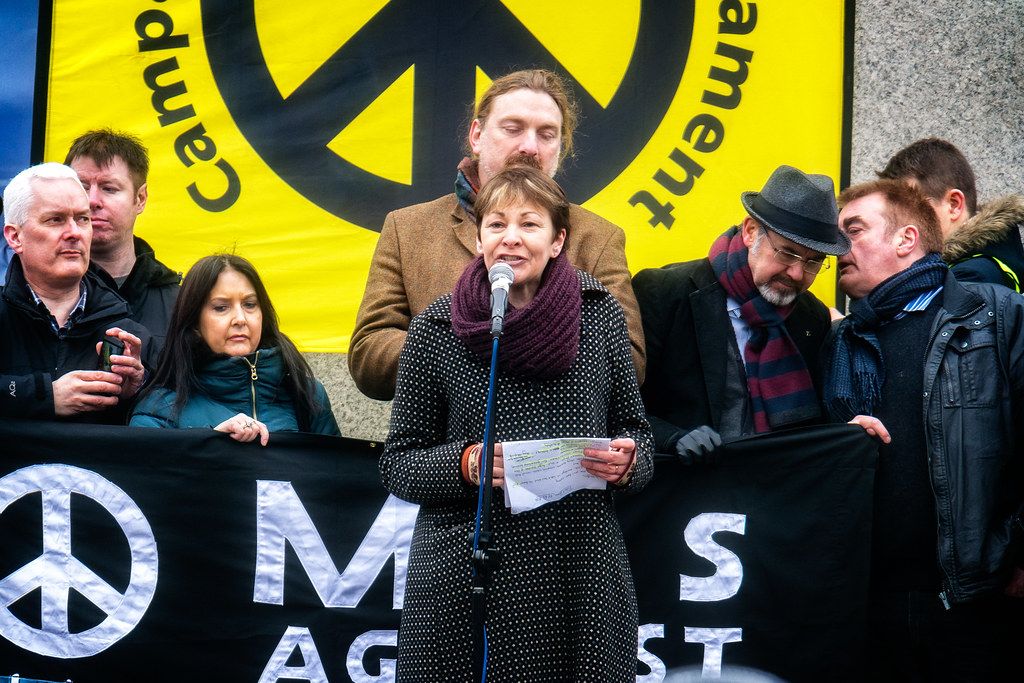Are We The Goodies?

2019 saw a lot of people—friends, acquaintances, people I was trying to hand leaflets to in the street—asking me a question. That question was: why are the Labour Party running against Caroline Lucas in Brighton Pavilion? Two pieces of context before I continue:
- I was the constituency secretary of Brighton Pavilion Labour Party that year, and;
- Brighton Pavilion is the only UK parliamentary constituency held by the Green Party[1].
There are any number of answers to this question: it is a matter of Party policy (in the rule book, no less) that we run candidates in every seat; people who want to vote Labour—of whom there are plenty, don’t forget it was a Labour seat until 2010—deserve to be allowed to vote for a Labour candidate; not doing so would shaft us in future council elections as the 2017 election arguably did in the 2019 ones; Caroline Lucas won’t be around forever, a good deal of the vote there is for her personally and people are less favourably inclined toward Alex Phillips, widely seen as her likeliest replacement.
But pulling the camera back a little, you realise the question is somewhat odd. It could be reduced to “Why are you, a political party, contesting a seat held by another political party?” The goal of political parties is to win elections, gain power and enact their agenda. There are, perhaps, argument about how much effort should be expended in contesting this constituency given the size of the Green’s majority, and those discussions were had within the party. But this isn’t the question I'm talking about. I think what my interlocutors are really asking is “Why are you fighting if you’re both the goodies?”
This isn’t to paint the questioners as naïve or foolish, but rather to highlight that the prism through which they look at politics is... not exactly moral, in the strictest sense; narrative is the best thing I can alight on. That political decisions should be taken not on a material basis—this politician supports my interests, or the interests of my class etc—but on the basis of taste, of vibe, of who the Goody (or Sensible One) is. Caroline is the Goody, her not being in your party is an incidental detail, why are you being so horrible and trying to get rid of her? This is hardly a new complaint, but I think it casts some other questions in a different light.
I believe that it's one of the reasons that a lot of people thought the Labour Party was Remain-supporting, or at least -sympathetic, in 2017. The liberal bien-pensant thought that the Nice Good People I Like must agree with me that the Bad Nasty Thing Must Be Stopped—despite the fact that they said in the manifesto in big letters: We're Going To Do Brexit. In 2019, ironically, when their position had been curdled further by foolish interventions into a massive vote-loser, they did not get this benefit. The narrative had turned.
My personal ideal solution on the specific question, incidentally (one that is shared by some others in the party and, weirdly, Paul Mason, as I discovered the other day) is that the Green Party should affiliate to Labour on the same basis as the Co-operative Party did 90-odd years ago. Caroline Lucas would sit as a Labour and Green MP, they'd get to keep their own conference and the local party infrastructure would merge. I suspect that is an unlikely outcome given the long-festering local animosities, the difference in party's internal styles and structures, the genuinely different backgrounds—and in some cases beliefs—of the parties, not to mention the desire of some to be a big fish in a small pond. But stranger things have happened.
The Green Party of England and Wales, to be exact—the Scottish and Northern Irish Green Parties are separate, as my Scottish Green friends would no doubt be keen to point out were I not to clarify this. ↩︎